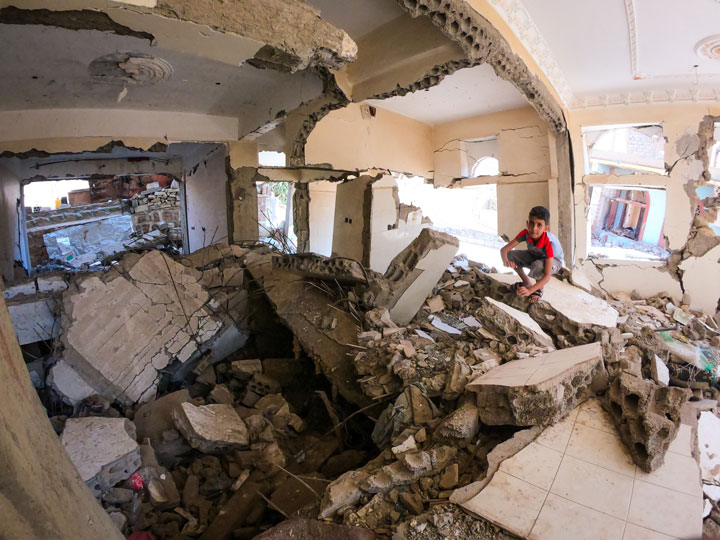Child labour, marriages on rise in Yemen as COVID spreads

The U.N. refugee agency said on Tuesday its work in Yemen was near a “potential breaking point” as coronavirus spreads in the war-damaged country, with rising numbers of families resorting to begging, child labour and marrying of children.
Around 80 percent of Yemen’s malnourished population relies on humanitarian assistance, making it the world’s biggest humanitarian crisis even before coronavirus.
Last week, the United Nations said its health care system “has in effect collapsed”, with the virus thought to be spreading throughout the country, and appealed for urgent funding.
“We are reaching a potential breaking point in our programmes where if we don’t receive further funding soon, many of our programmes and particularly our cash assistance programmes to internally displaced Yemenis may have to stop,” said Charlie Yaxley, UNHCR spokesman, at a virtual briefing.
“We are seeing a growing number of families resorting to harmful coping mechanisms such as begging, child labour and marrying of children to survive,” he added.
UNHCR provides cash assistance programmes to some 1 million people who are internally displaced and rely on the money for food, medicines and shelter, he said.
The country, whose population has among the world’s lowest immunity levels to disease, is divided between the Saudi-backed government based in Aden and its foe, the Iran-aligned Houthi group, in the north.
Saudi Arabia, leader of a military coalition fighting the Houthis, and the United Nations are due to co-host a virtual pledging conference on June 2.
The U.N. Office for the Coordination of Humanitarian Affairs said on Tuesday it had received around 15 percent of the funding required for the $3.38 billion 2020 Humanitarian Response Plan for Yemen with the United States the top donor.
“The humanitarian situation in Yemen could spin out of control as COVID-19 threatens a population already weakened by years of conflict,” World Food Programme (WFP) spokeswoman Elizabeth Byrs said at the same briefing, saying the pandemic was threatening food imports.
“WFP expects coronavirus to push many more children in Yemen into acute malnutrition,” she added, saying over 2 million children were already suffering from it.
Tags
Related Posts
Yemen: Explosive Repaints Of War The Biggest Killed Of Children
Landmines and unexploded ordnance have been the biggest killers of children in Yemen since a truce was announced in April, Save the Children said today. The uptick in deaths from these weapons is understood to be the result of families moving to previously inaccessible areas following the decrease in hostilities….
July 4, 2022Girls facing higher risk of ‘summer’ marriages in Middle East and North Africa
Girls in the Middle East and North Africa are in greater danger of being forced or sold into ‘tourist’ or ‘pleasure’ marriages due to the surge in poverty, displacement, and the COVID-19 pandemic, Save the Children warned ahead of a global meeting next week on gender equality….
June 27, 2021


